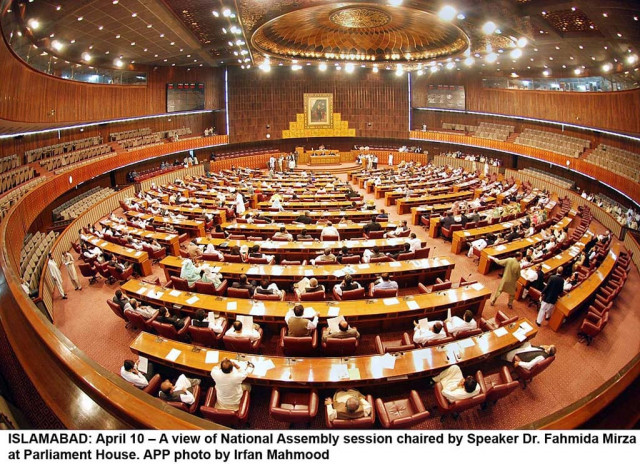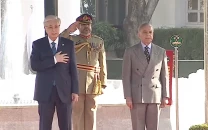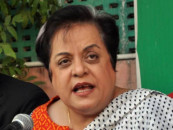LoC skirmishes: Lawmaker raises the spectre of nuclear war
Treasury, opposition unite to condemn Indian hostilities.

LoC skirmishes: Lawmaker raises the spectre of nuclear war
Amidst unabated ceasefire violations by Indian troops along the Line of Control (LoC) and Working Boundary, Pakistani lawmakers hit out at New Delhi for its hostile posturing and raised the spectre of a nuclear war in the region.
“The Indian hostilities could trigger a nuclear war between India and Pakistan,” Major (retd) Tahir Iqbal, a lawmaker from the ruling Pakistan Muslim League-Nawaz (PML-N), said during a debate in the National Assembly on the escalating tensions on the LoC and Working Boundary.
“If a nuclear war breaks out between Pakistan and India, then its flames will engulf the entire world,” he said in an ominous warning. He added that a “tit-for-tat strategy will work for India as retaliation [to aggression] is inevitable”.
Iqbal also said that Pakistan must foil India’s bid to become a permanent member of the United Nations Security Council. “If this happens [India becomes UN Security Council member], then it will enjoy veto power which would damage the Kashmir cause at the global forum,” he added.

Endorsing Iqbal, PPP MNA Shazia Marri said, “This is the time we respond to India as a nuclear state.” India claims to be the largest democracy of the world, but looking at the rampant and flagrant violations of human rights in Kashmir by Indian troops “we can call it a sham democracy,” she added. “It’s a fact that we cannot change our neighbours – but living peacefully is a shared responsibility.”
Interestingly, while lawmakers were debating Indian hostilities, Prime Minister Nawaz Sharif was busy signing applications handed to him by several parliamentarians on the floor of the house. And this didn’t go unnoticed as MNA Marri heaped criticism on the government for its non-serious attitude on this vital issue of foreign policy.
Taking part in the debate, MNA Awais Leghari, who is chairman of the National Assembly Standing Committee on Foreign Affairs, asked the UN to force India to fulfill its old promise by giving the right to self-determination to the Kashmiri people in accordance with the UN resolutions as recently the United Kingdom also held a referendum on the issue of independence for Scotland.
Leghari admitted that diplomats and members of parliamentary committees failed to record a meaningful protest at international forums against the Indian aggression. “Why did Western democracies turn a blind eye to the festering Kashmir dispute? Why did Indian Prime Minister Narendra Modi not allow UN observers to visit Working Boundary?”
MNA Nafisa Shah of the PPP said that Modi’s India believed in Hindu nationalism. “It’s no longer a secular India,” she said and asked if Pakistanis were prepared to deal with this new India. She also slammed the government’s ‘vague policy’ on the Kashmir dispute. “We are tired of the government’s vague policy on Kashmir. It’s a failure of our diplomacy. Today’s India wants to integrate Kashmir. If it goes ahead, then what will happen to Azad Jammu and Kashmir,” she questioned.

PML-N’s Marvi Memon, however, defended the government stance over Kashmir. “Pakistan forcefully responded to Indian aggression. Now we, lawmakers, need to move forward and record our protest by visiting the Line of Control (LoC),” she said and urged all lawmakers to commemorate a ‘black day’ on October 27 at the LoC as a gesture of solidarity with the Kashmiris.
Marvi said Pakistan wanted to resolve the issue of Kashmir through dialogue. However, an appropriate response would be given to any Indian aggression, she vowed. She also paid glowing tributes to the Pakistan Army and said the troops were giving a matching response to Indian aggression on the LoC and Working Boundary.
MNAs Asiya Nasir of the JUI-F and Dr Fauzia Hameed of the MQM also took part in the debate which was ongoing when Speaker Ayaz Sadiq adjourned the session for Thursday 11am.
Published in The Express Tribune, October 23rd, 2014.



















COMMENTS
Comments are moderated and generally will be posted if they are on-topic and not abusive.
For more information, please see our Comments FAQ